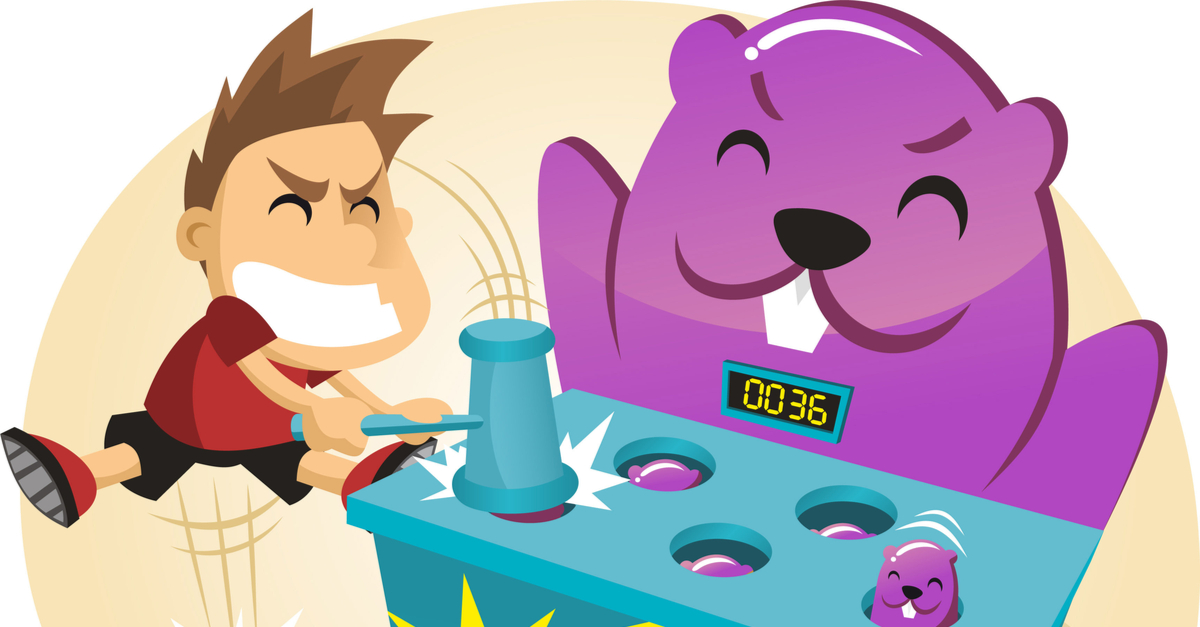 Dr. David Fawcett
Dr. David Fawcett
In my previous post to this site, I discussed the fact that recovering addicts need to beware of secondary drugs and behaviors. In that blog I wrote, “If we just treat the primary drug or behavior without addressing the underlying drivers, that addict is at great risk for relapse or new forms of addiction with an ever-expanding array of addictive drugs and behaviors.” This risk for secondary addictions rising to the fore is what I sometimes refer to as the “Whac-a-Mole” syndrome.
The following are drugs and behaviors to which recovering addicts should pay special attention:
- Marijuana: I am constantly surprised to read in recovery chat groups about the number of people who continue to use marijuana in recovery. Marijuana is a powerful drug, and it needs to be acknowledged as such. Admittedly, there are medical applications with marijuana, but I fear that some people in recovery take its widespread legalization and increasingly common use as an indicator that there won’t be a problem if they use the drug. Some demand the right to define their own abstinence, which may include alcohol, marijuana, or other behaviors. Given the centrality of denial in addiction, I feel it is dangerous for an individual to decide what’s right for them without consulting with a sponsor, therapist, or some other objective person who can hold them accountable.
- Alcohol: I believe that if alcohol were suddenly invented today, it would be banned because of its dangerous and potentially life-threatening effects. However, it is legal, well-embedded into our culture, and generally accepted in many contexts. It remains, however, a toxic substance that is highly addictive and produces potentially life-threatening health conditions. Despite its social acceptance, alcohol remains a high-risk substance for persons in recovery.

- Alkyl Nitrites (“Poppers”): Alkyl nitrites are used in conjunction with sex to enhance the sensation of orgasm and relax the sphincter during sex. There are various types, the most common being amyl nitrite and butyl nitrate. Originally used as heart medications in the 1960s, these drugs have become a staple among gay men, who often consider poppers benign. But poppers are not benign. In addition to a high potential to fuse the effects of poppers with sex and porn, they can in fact produce a dangerous drop in blood pressure (made worse if the person is also taking drugs like Viagra) and cause significant headaches and tachycardia (dangerously elevated heart rate). They are powerfully psychoactive and should be recognized as such.
- “Healthy” Addictions: Although I resist the notion of a healthy addiction, I use this term because I often hear clients use it. By definition, an addiction is a compulsive habit over which we lose choice. There are behaviors we consider healthy, such as exercise, which, for a compulsive individual, can become subverted into a problematic concern. Exercise in moderation is a powerful healing force for someone in recovery. It stabilizes moods, improves concentration, and releases amino acids that are the building blocks of the brain’s reward circuitry (which is often damaged by the addictive process). In excess, however, it is possible to become captive to compulsive drives and actually harm oneself through exercise.
- Extreme Sports: Amphetamine, porn, and sex addicts all share an addictive relationship to intensity. The thrill of dopamine and other neurochemicals creates a high as the user tries to surf the intersection between excitement and anxiety (or even terror). Many other activities create a similar profile of neurochemicals: rock climbing, bungee jumping, rappelling, and skydiving, to name a few. What is the place of such sensation seeking in the life of a recovering intensity addict? In my experience, these activities in moderation can provide a state of intensity that can help increase tolerance for other periods of low energy, boredom, or inactivity. However, these behaviors can become problematic in excess. I recommend that my clients, if they choose to engage in extreme sports, use caution and make every effort to do them with other people. This provides some accountability while fueling the social connections that are so vital to recovery.
People who have become addicted to various drugs or behaviors have learned to manipulate their neurochemistry for pleasure, to numb feelings, or simply to avoid boredom and low stimulation. Once in recovery, their brains still crave those sensations unless they begin to address what is driving those compulsions through step-work, therapy, and actively connecting in a recovery group. This work tempers the impulses and eventually makes the compulsive behaviors unappealing. But even well into recovery, addicts need to maintain respect for the addictive appeal of various drugs and behaviors, even if they have never had a problem with them.
* * * * * * * * * *
If you or someone you care about is struggling with compulsive sexual behavior, help is available. For sex addicts, Seeking Integrity offers a low-cost online workgroup series. Click HERE for information. We also offer a low-cost online workgroup to help addicts learn about healthy intimacy and sexuality. Click HERE for information.
